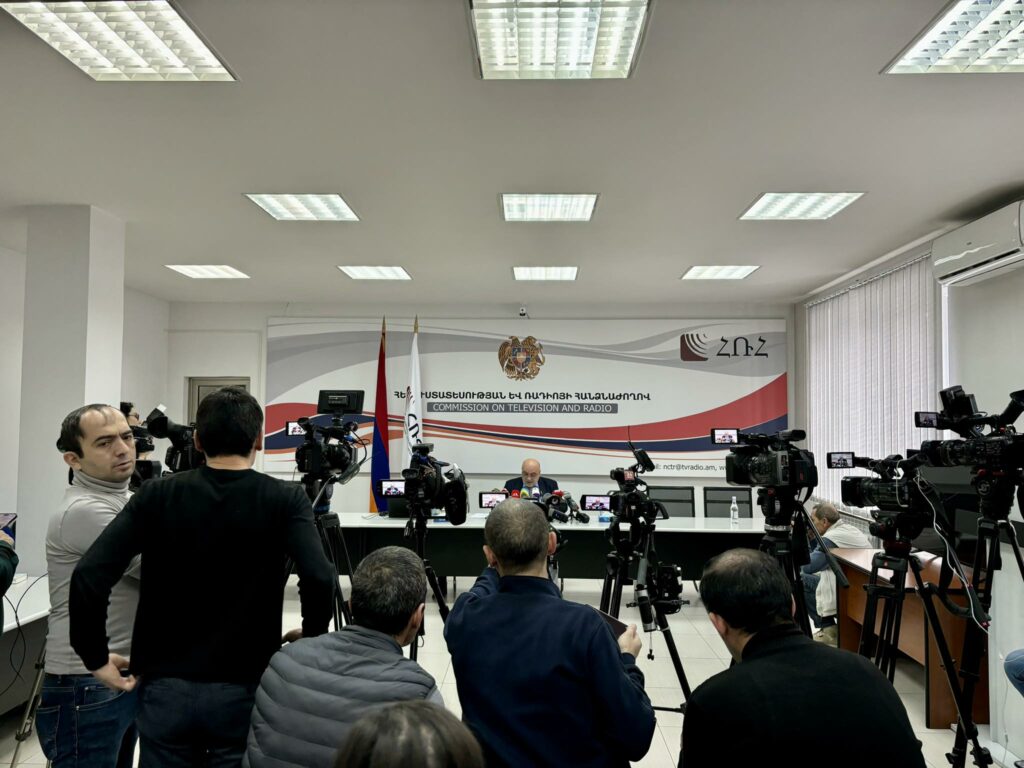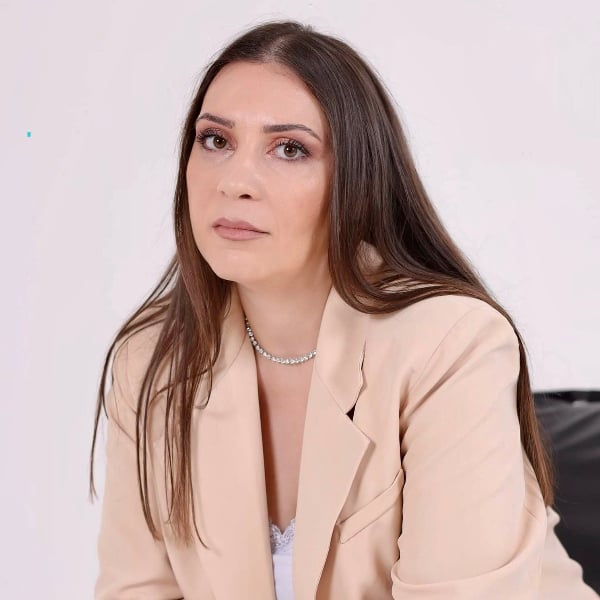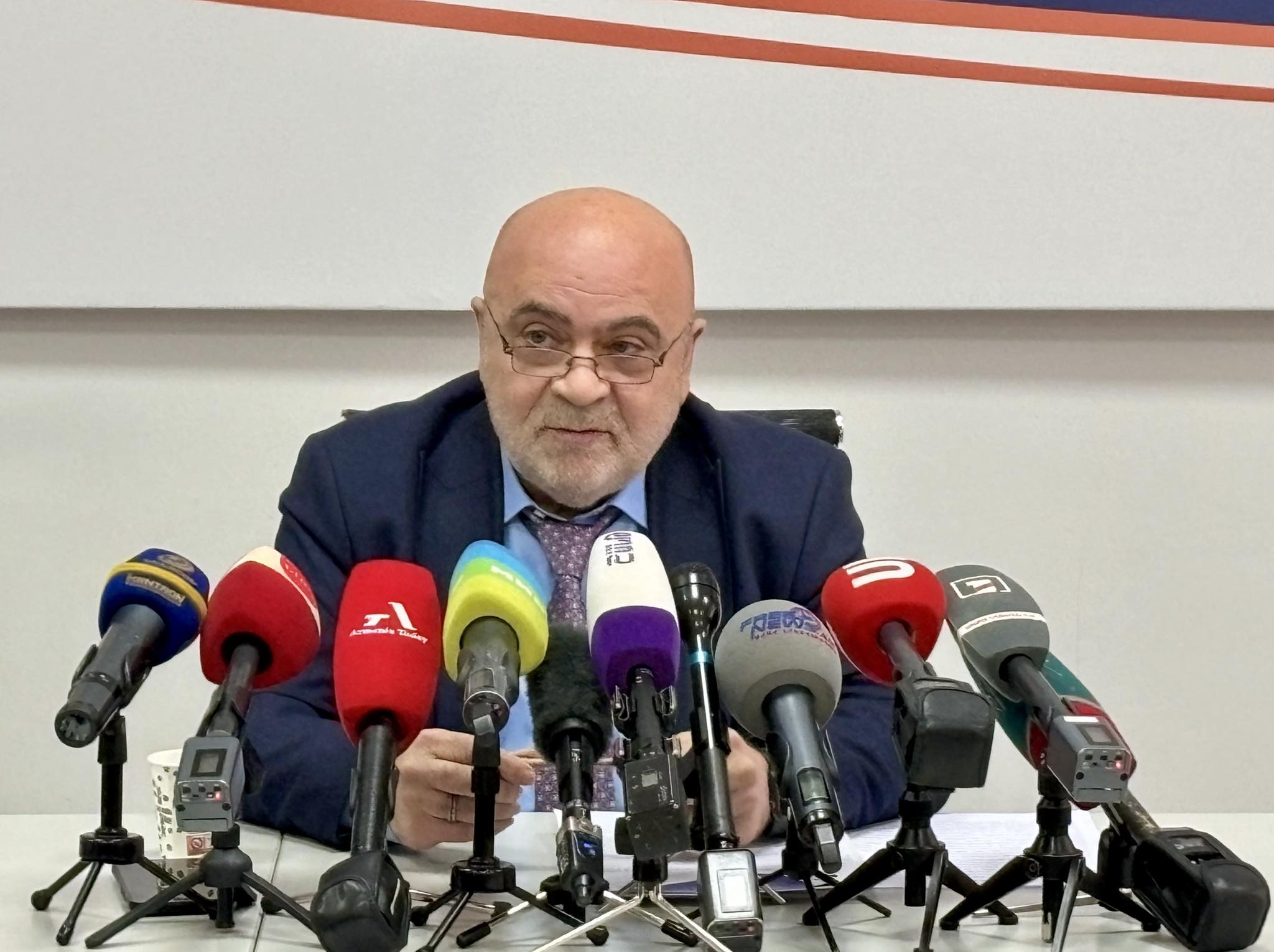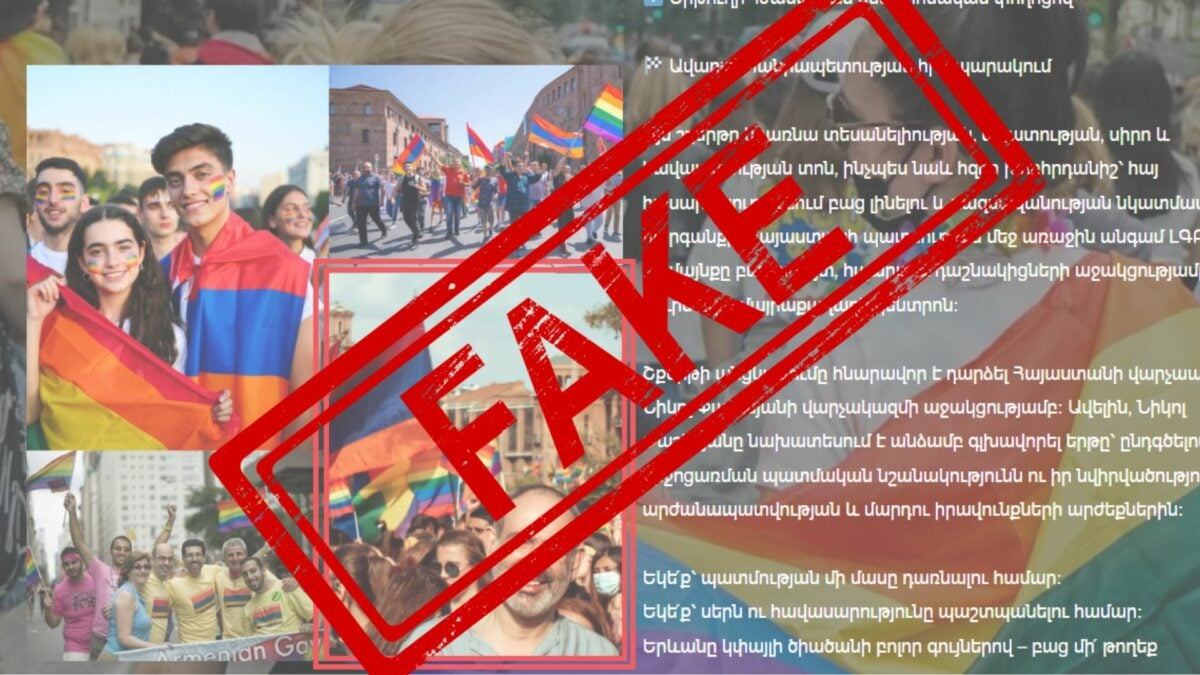Tigran Hakobyan, the Chairman of the Commission on Television and Radio of the Republic of Armenia (CTR), presented the commission’s annual report 2023 during a press conference today.
Media.am highlighted the key topics discussed in Hakobyan’s speech.
About CTR in numbers and not only
Based on their reactions, the general public appears to have a limited understanding of our activities. Although our work is often viewed through a political lens and the political aspect is emphasized, content control is not our primary focus.
Our primary focus is ensuring broadcasters comply with the legislation through continuous monitoring. The scope of our work is quite broad.
In 2023, we regulated 28 audiovisual service providers, including capital and regional broadcasters, three Russian TV channels, and Public Television.
We regulate 62 small regional cable companies that offer affordable services compared to larger operators.
Over the past year, 64 administrative proceedings have been initiated, 57 of which we initiated.
Between 2013 and 2018, we initiated 13 proceedings, which led to some people accusing us of being too harsh on television. However, this is not the case. The broadcasting companies support our decisions.
Between 2019 and 2023, we issued 92 licenses. Of those, 30 licenses were for a slot in the public multiplex.

Regarding the debts of television stations
Several television companies, namely Armenia, ATV, Dar21, FreeNews, and Fortuna, have accumulated debts. It is sad for everyone involved, but we will not blame them. Even Armenia TV, which had a profitable business model and was well-liked and viewed by people, now operates at a loss due to the changing landscape of the industry. All TV companies are currently operating at a loss, as advertisers now prefer other platforms. Every year, TV viewership drops by 3-5 percent.
Public television was granted permission to advertise, which we strongly opposed. We believe it should have remained state-funded. In 2023, Public TV made approximately 700 million drams through advertising. This implies that the 700 million drams were taken from other broadcasters, as they all operate in the same field and compete for advertising revenue.
The ban on advertising for gambling and lottery games has had a significant impact on the advertising market. As a result, television companies faced a loss of 800-900 million drams in just one year. These two factors alone have put TV companies in a difficult financial situation
The television companies have repaid their debts in all cases except for one. FreeNews still has a significant amount of debt left. The Ministry of High-Tech Industry is planning to take stringent measures.
On Russian channels and Sputnik
The things that domestic broadcasters are allowed to do should not be permitted for foreign broadcasters. Armenia has an information agenda that includes daily coverage and criticism. However, as a sovereign state, Armenia should not allow anyone sitting on foreign shores to use abusive language against Armenia, the Armenian people, or the leadership of Armenia, no matter whether we like that leadership or not.
We have imposed a 30-day ban on the “Tospa” company’s broadcasting on “Sputnik Radio” due to their use of offensive language, threats, and calls for violence. This behavior was observed repeatedly during various programs, leaving us no option but to initiate administrative proceedings.
There is something I don’t understand about this story. The “Tospa” company has stated in its press releases that it condemns the content. A Russian delegation arrived and expressed remorse for the wording, stating it did not correspond to the editorial policy. However, Tospa still proceeded to take legal action.
We do not find the punishment disproportionate to the crime. I suggested an experiment where we replace the Armenian people with the Russian people, Armenia with Russia, and the name of our leader with the name of their leader. The experiment aimed to observe how long the media would be allowed to report on such a controversial topic.
We have agreed to create a hotline to resolve any issues quickly. I am confident that such problems will soon cease to exist. I’ve been informed that changes have been made to the editorial policy.
We are currently addressing the issue of Russian channels and have prepared a report to be sent to The Ministry of High-Tech Industry for resolution. It is not typical for any country in the world to have a foreign broadcaster in their public multiplex, and we believe that the Ministry of BTA has not fulfilled their obligations in this regard. We hope the minister will take consistent action to prevent attempts to interfere in Armenia’s internal affairs and spread misinformation. Whether a country is friendly or not, foreign broadcasters should not be included in the Public Multiplex.
On Turkish-language radio broadcast in Armenia
Frequency knows no bounds. Turkish broadcasters have a powerful reach and can be heard in Armenia. It is important to remember that Armenian radio is also broadcast in Turkey and Iran.
The Ministry of High-Tech Industry has purchased expensive new equipment to locate foreign broadcasting all over Armenia and try to minimize it. Silencers are not effective, as was demonstrated during Soviet times when people continued to listen regardless. This is a technical issue, and the ministry is working to reduce foreign broadcasts. While it is impossible to eliminate them entirely, it is possible to reduce them.
On CTR values
Some have expressed doubts about the independence of our commission and have suggested that our decisions are influenced by outside forces. However, I want to emphasize that we always make decisions independently, without any external organization ever predicting our actions. There have been no attempts to influence our decisions, as we believe that it would go against the values that our commission stands for.
About achievements
Last year, the CTR joined the platform of regulatory bodies for Mediterranean countries. Despite not sharing a border with the Mediterranean states, Armenia is a member of this platform and was elected as its vice president for one year. This year, the annual meeting will be held in Armenia, where we will showcase our activities and promote Armenian content abroad. We are committed to making a strong impression and representing our country at this event.
There has been an increase in the number of Armenian language programs being aired, while hardly any programs are broadcast in Russian. In the past, around 70-80 percent of the content on television was in Russian, including films and programs. However, the situation has changed today, and we no longer see such a trend. Furthermore, there has been an increase in the number of public interest programs being aired. Many channels now meet the minimum threshold of airing 20 percent of public interest programs, while some televisions have gone a step further and are broadcasting 40-50 percent of such programs.







